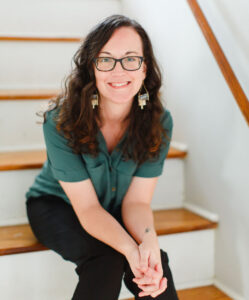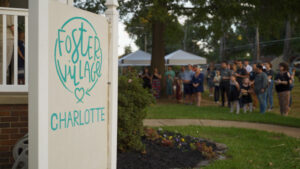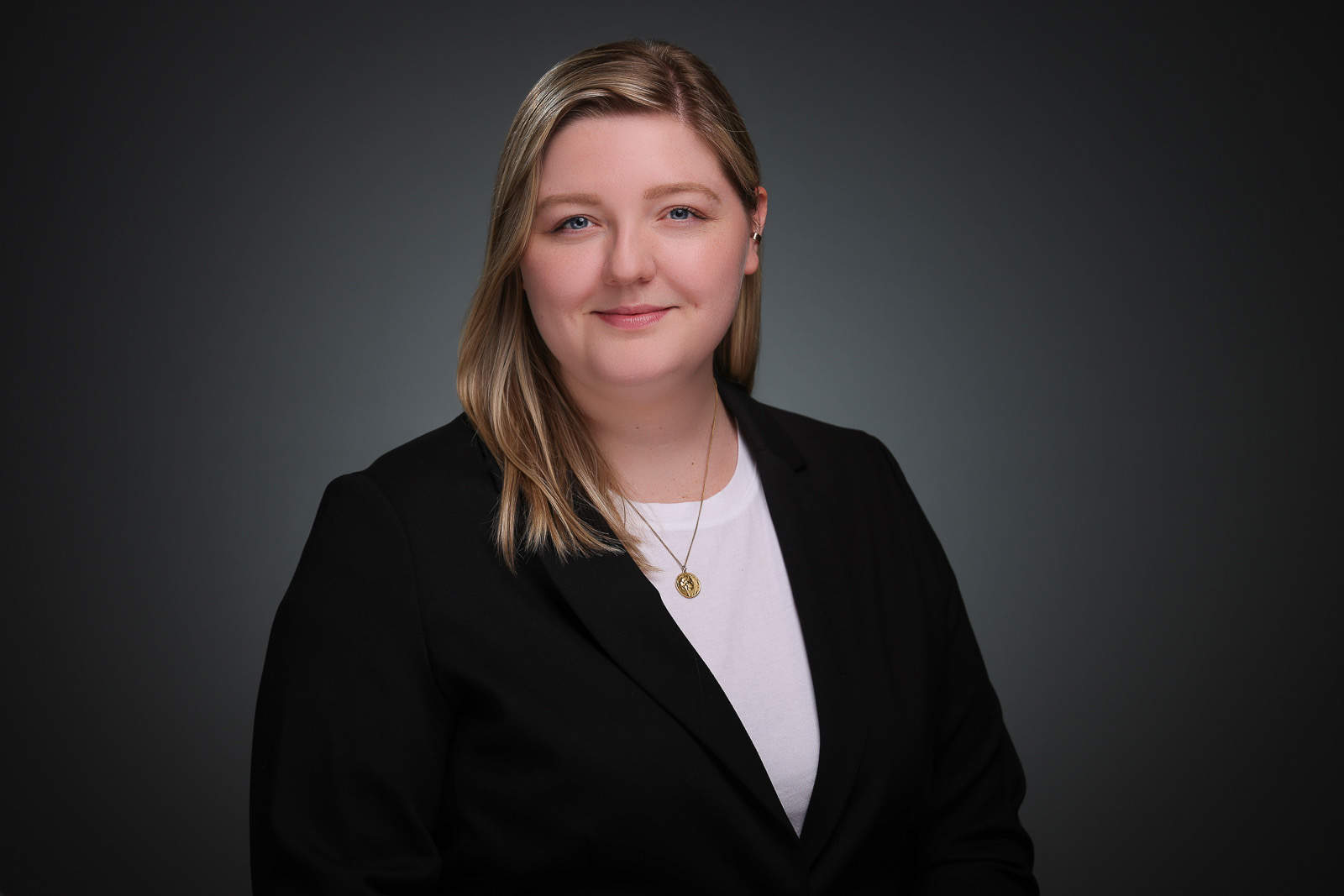All across the state, dedicated advocates are driving meaningful change for the children and families in their communities. I’m delighted to share with you all a conversation I had with Becky Santoro, who is the co-founder and executive director of an organization making an impact in my hometown of Charlotte, North Carolina.
Becky leads Foster Village Charlotte, a nonprofit that creates connection with dignity for children and families experiencing foster care by meeting urgent needs, providing educational and emotional support, and advocating as a collective community voice for children.
I sat down with Becky to learn more about Foster Village Charlotte and how they address resource gaps, as well as how our communities can further support foster families.
EMILY: Hi Becky! How did you become an advocate for foster families?
BECKY: Both my husband and I are former educators. Once we left the classroom, we realized that we still wanted to be involved in the kids and family space, and we wanted to support those that might be in vulnerable situations or communities. We became licensed as foster parents and right away got a call for our daughter, who is now our forever daughter.

For us, the wheels started turning around that time and we knew that there needed to be more community awareness about foster care, what the needs are in our community, and practical ways that people can get involved in foster care without necessarily becoming a foster parent. We also knew that there was a great need for peer-driven support, which wasn’t a thing in our community when my husband and I became foster parents.
So, all of this was birthed out of my own experience as a foster parent and, you know, once you see it, you can’t un-see it. I knew that we could do this better as a community and that’s what led myself and some other co-founders into the launch of Foster Village Charlotte.
EMILY: You talked a little about how your experience as a foster parent showed you where there were certain needs or gaps in resources. Can you tell me a little bit more about these needs and how Foster Village Charlotte works to address them?
BECKY: I think one of the biggest barriers or lack of resources in our community was at first, just locating each other. We have private agencies that are licensing families. We have the county that’s licensing families—and no one was really talking to each other. There’s this research-based idea that peer-driven support provides a lot of stability for foster parents and kinship care givers, and so we wanted to find out where our foster parents were and connect them together within communities so that there was place-based and a peer-driven support network for families.
We also know that there are differences between what you’re taught when you’re getting your license and what your lived experience may be like. If you’ve never fostered before—or even if you have—each experience is different, and there’s always a learning curve. We said from the beginning that we wanted to be a resource hub, and so what we’re trying to do is not necessarily have an answer for everything, but rather collect information and figure out how to get parents and their foster children what they need.
EMILY: Can you tell me more about why peer-powered networks are so effective?
BECKY: Peer-support networks are so interesting because it’s something that research has shown to be effective across the board—not just for foster parents. There’s a lot of power in looking across the table and knowing that you’re not alone.
It’s so easy to get stuck in the mud of what’s hard, but what we do that’s different is that our peer-support groups are also attended by licensed therapists—who are also foster parents themselves—who can work with the group to help them develop really great tools that help them be more resilient.
EMILY: Is there a story or experience that you remember that really resonates with you and demonstrates why Foster Village Charlotte is important and what kind of impact resources and a peer-support network can have on a foster family?
BECKY: There was a family that we saw from the very beginning. They were newly licensed foster parents and they didn’t have a placement yet. They didn’t have kids already in their home and they took our Village Bridge class, which we offer to anyone who wants to learn more about what they day-to-day foster care journey can look like. So they attended the group, eyes wide open, trying to get connected within the community since they had also just moved to Charlotte.

About halfway through the class, they got a call about fostering two young boys. We were able to provide them with a welcome pack and later, some sensory tools and programs for the children. At some point in this process, it became clear that the children would need an adoptive home and supports that could help the boys with some grief work as they were contending with some personal family loss.
From start to finish, Foster Village Charlotte was able to support them at every turn. The parents were able to access every resource we offered, the children were able to get the help and support they needed, and in the process this family was able to build connections within their communities that kept them stable and comforted during a really difficult process.
EMILY: I think that a lot of the time when people think about foster care, legislation and public policy isn’t the first thing on their minds. With that said, what impact can public policy have on our foster care system?
BECKY: Our foster care system, and the policies that surround it, has a lot of layers to it. There’s not going to be one answer or one policy that solves all the things—but we know that good policy happens when we hear the voices of those with lived experience.
One thing we were able to do around 2020-2021 was work with other organizations across the state on a North Carolina Foster Parent Bill of Rights. It wasn’t anything revolutionary; it was just the same things that should be happening across all 100 counties. So this was a document that could aid foster parents in advocating for what they need to be successful—and some of those things included being able to talk in court about the child and what they are seeing in their home and allowing them the dignity to stand up as a foster parent instead of having to remain silent in the courtroom or not be invited in at all.
EMILY: What are some other priority areas for Foster Village Charlotte?
BECKY: Something we’re really passionate about is expanding resources and education around kinship care. Kinship caregivers are relatives that are caring for kids in foster care—so it could be aunts, uncles, grandparents, etc. In my county, I think about 38% of our kids right now are residing in kinship homes. What we know is that, statistically, outcomes are better when kids are with their family of origin. But we also know that there are barriers kinship caregivers face, whether it is around the stipend they are given when kids enter their care, or the education and resources that are available to them. With kinship care, those relationships are very nuanced, and those needs are very different—and what we want to do is make sure that kinship caregivers have everything they need to be able to support the child in their care so we can see those more positive outcomes for overall child health and well-being.
EMILY: If someone is interested in advocating for foster families, what is something they can do immediately in their communities to provide that support?
BECKY: If you know a foster parent, just assume that they are living a chaotic existence and there are parts of their experience that they cannot legally share with you. Showing up for them either with a meal or picking up stuff from the grocery store for them is a great way to take a little bit of the load off.
Volunteering with local foster parent support organizations that provide essential resources to foster families is another great way to be an advocate. I think a lot of the time we make advocacy out to be this big thing, but the small things of just being there and showing up and lending a helping hand is a great way to build community and be an advocate.


